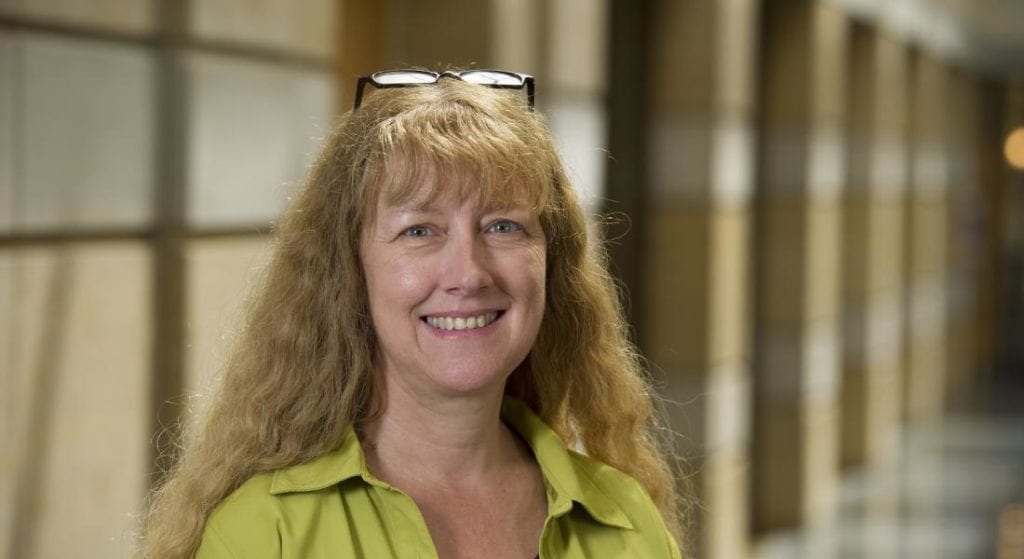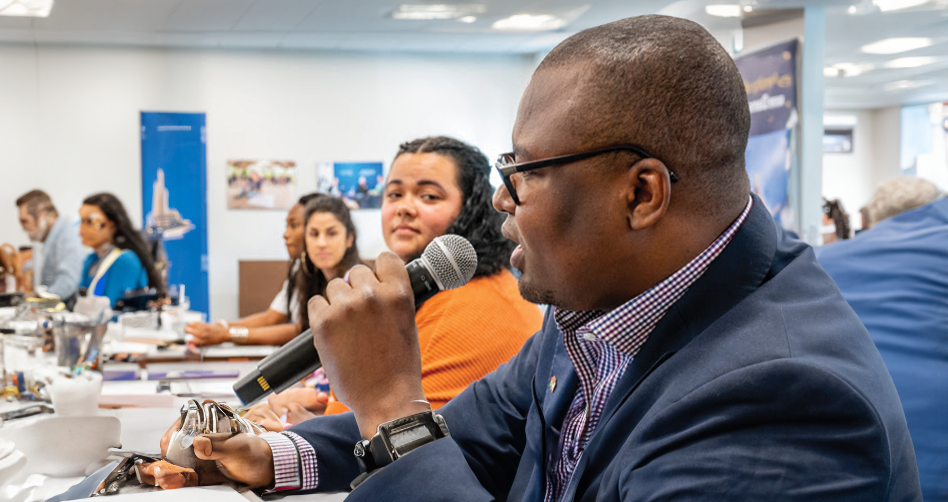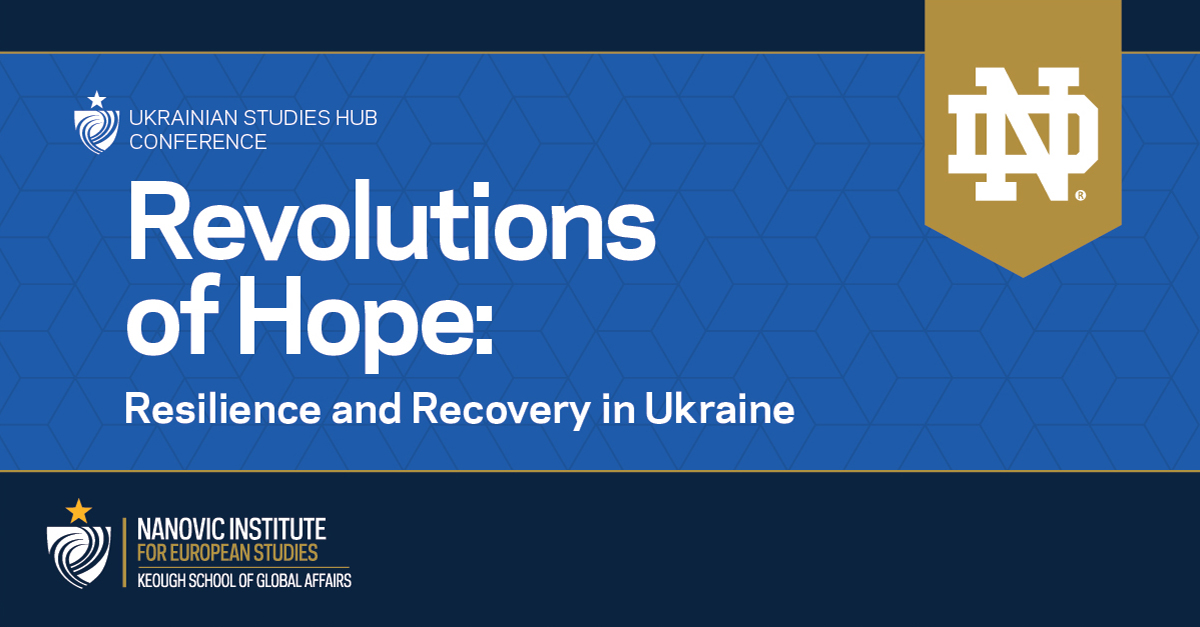‘It’s Impossible to Imagine Kellogg Without Her’
Before she traveled to the University of Notre Dame for a job interview more than two decades ago, Sharon Schierling had to look on a map of the United States to find South Bend, Ind.

Even though she didn’t know the exact location of the small Midwestern city, Schierling – then a Fulbright scholar in El Salvador – was well acquainted with the Kellogg Institute for International Studies, where she hoped to land a job as a program coordinator. Earlier, as a graduate student at Louisiana State University, she had closely followed Kellogg’s research on democracy – to the point she had the Institute’s working papers and newsletter mailed to her home.
“For a Latin Americanist and political scientist, this was the place to be. I just couldn’t believe that they were considering hiring me,” said Schierling, who was studying the reintegration of returned refugees in El Salvador and Guatemala after civil wars. “All these people who were the key scholars in my field were either faculty at Kellogg or were somehow connected to it.”
Schierling not only landed the position but, in the 21 years since, has become what one colleague described as the “public face of Kellogg,” both on campus and among the Institute’s peer institutions worldwide. She retired last week as Kellogg’s managing director, a job that entailed acting as the key supervisor to Kellogg’s large staff while overseeing its day-to-day operations.
“Everyone looks to Sharon for guidance, everyone depends on her vast experience, knowledge and judgment – I mean everybody. While her job is exacting and draining, her enthusiasm and energy never seem to wane,” said Scott Appleby, who has worked with Schierling for more than 20 years – first as director of the Kroc Institute for International Peace Studies and now as dean of the Keough School of Global Affairs.
“Sharon has helped to position Kellogg as one of the most vital multidisciplinary units at Notre Dame. Indeed, it is impossible to imagine Kellogg without her.”
The 38-year-old Institute has long had been known as a leading center for scholarship on democracy and development, with a historic strength in studies of Latin America and, more recently, expertise in Africa and the Global South. But colleagues credit Schierling with playing a key role in expanding the scope of Kellogg’s programming and influence at Notre Dame and beyond.
Director Paolo Carozza said Schierling helped build a number of the core programs that make Kellogg distinctive, including its signature visiting fellows program, faculty grants system, working groups, and research clusters.
Schierling was also instrumental in developing and running the Institute’s Asia initiatives in collaboration with Notre Dame’s Center for Asian Studies, which led directly to the creation of the Liu Institute for Asia and Asian Studies.
More recently, she played a key role in integrating Kellogg into the Keough School, the first new school at Notre Dame in nearly a century.
“The Kellogg Institute’s impact on Notre Dame is due largely to the uncompromising standards of excellence that Sharon demanded in her oversight of all the Institute’s programs,” Carozza said. “Even more than that, her unparalleled ethic of hard work, open collaboration, and enthusiastic friendship made her positive and constructive presence felt throughout the University.”
Schierling was awarded the prestigious 2020 President’s Award by the University in the spring in recognition of her leadership at Kellogg, which included raising “virtually every aspect of the Institute to new levels of excellence.”
“Colleagues from both Notre Dame and elsewhere laud her as the Kellogg Institute’s heart, its institutional memory, and its unsung hero,” the award citation said.
Timothy Power, a former Kellogg visiting fellow and director of the Latin American Centre at the University of Oxford, called Schierling “the most institutionally valuable administrator in Latin American studies anywhere in the world.
“I say this without the slightest exaggeration. She is the secret weapon of the Kellogg Institute, which is the jewel in the crown of the University of Notre Dame.”
Schierling is responsible for shepherding the Institute through a period of transformative growth, during which its staff more than doubled and it vastly expanded opportunities for scholars at all levels.
Kellogg also focused more of its research on human development, a holistic model of human flourishing that, along with democracy, is one of its two core research themes. The concept of integral human development has gained increasing attention among scholars and is at the heart of the Keough School’s mission.
Schierling said Kellogg, with its interdisciplinary approach to research and the institutional support of the Keough School, is now positioned at the forefront of human development studies.
“You can’t just solve issues of development by looking through the lens of economics,” she said. “You have to come from health, society, religion – you look at it from all these perspectives, and Notre Dame – and particularly Kellogg and Keough – have really embraced that.”
In her time at Kellogg, Schierling said she’s most proud of assembling a hard-working, talented staff known on campus both for its professionalism and unique sense of community.
“We think of Kellogg as this broad community of faculty and students, but the people who actually make things happen are the staff. They’re the glue that holds everything together, and the Institute couldn’t function without them.”
Kellogg Associate Director Holly Rivers, who leads Kellogg’s undergraduate programs, described Schierling as an advocate for staff who encouraged them to “think big” and be creative. Under Schierling, Rivers developed a variety of fellowship and internship opportunities that have dramatically increased the number of undergraduates affiliated with the Institute.
Rivers said Schierling acted as a mentor, particularly for female employees, and urged them to pursue leadership roles within Kellogg and Notre Dame.
“She’s been an example of how to be a strong woman, someone who’s passionate about her work and cares about others,” Rivers added. “She’s successful, and academia isn’t always an easy environment to be in, particularly for women.”
Schierling will remain a Kellogg teaching professor emerita after her retirement. While the adventure sports enthusiast doesn’t know exactly what her future holds, she said that after a career in academia, she hopes to be in the field and not in the ivory tower: “I want to be outside the country as much as possible, and I want to be outside as much as possible.”
Still, she plans to remain connected to the Institute.
“I’ve spent 21 years here and I’m thoroughly a part of Kellogg and Kellogg is thoroughly a part of me,” Schierling said. “I care very much about what Kellogg does, and maintaining that connection is important to me.”
Originally published on kellogg.nd.edu by Ashley Rowland on August 10, 2020.
August 10, 2020
More Like This
Related PostsLet your curiosity roam! If you enjoyed the insights here, we think you might enjoy discovering the following publications.









